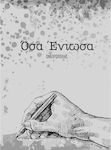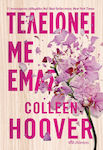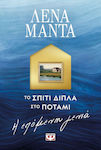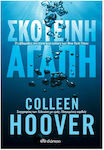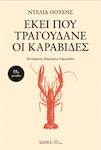Skroutz Buyers Protection
ΘερμοκήπιοCode: 2034227
- Author: Στρατής Δούκας
- Publisher: Kedros
- Μορφή: Hard Cover
- Έτος έκδοσης: 1982
- Αριθμός σελίδων: 40
- Διαστάσεις: 25×17
Στρατής Δούκας
Buy together

 Top rated
Top rated
Pool Rafts & Inflatable Ride-ons
Intex Inflatable Drink Holder Unicorn White 3pcs
Ad from Gp escapeAdded

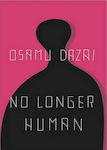
 Top rated
Top rated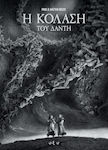
 Top rated
Top ratedBiographies & Memoirs
Καλησπέρα και Καλή Βραδιά, The Biography of Vasilis Karras
Ad from SilverProductsAdded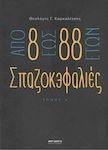
Similar products
All shops
Prices are calculated for:Malta, Other Payment Options
- 3,92 €
- 3,90 €
Description
With "The Greenhouse," Stratis Doukas gives us the chronicle of another, internal journey. Simplicity and immediacy are not the only virtues of his writing - known from "The Captive's Story," "The Traveler," and "The Enchanted." The diary-like and often confessional style becomes a moving expression of the character of a language, from which things, people, and space in general emerge vividly.
"The Greenhouse" is not a real place: it is an era intensely experienced by the author. However, the internal narrative does not abolish the existing external space. It is rather a dynamic confrontation that ends in mutual acceptance.
For the narrator, "The Greenhouse" is sometimes a refuge, sometimes a prison. Just like the outside world is sometimes freedom, sometimes a nightmare. Outside is the strong light of the sun (cheerful at times, and harsh at others) - inside is the milky light of tranquility, which sometimes provides warmth and protection, and sometimes coldness and loneliness. [...]
To a discerning reader, the paradoxical action of the internal monologue that Stratis Doukas presents in "The Greenhouse" will not go unnoticed: because it does not turn us towards the personal experiences of the protagonist - no matter how vividly they are described - but intensifies the stimuli from the world outside the individual. In this enclosed space, colors, sounds, touches, and love become magnified, making the plants of "The Greenhouse" so vibrant.
Mary Kasou
Athens, September 1982
Within "The Greenhouse," there is a dense primary literary material from which springs forth the apologia of a life rooted in the sense of things and events. The plasticity of the language is captivating. The author kneads it. Sometimes this way, sometimes that way, always within the same incorruptible aesthetic and conceptual framework. Where he subtracts, he makes it more direct. Where he adds, he makes it more plastic. This way, density is liberated. Diffuse sensitivity is created. The lyrical, the bucolic, the contemplative, and the ethical are harmonized into one impression. Among his expressive emotions, Stratis Doukas reveals a rare nobility. [...]
With the "oral quality," which typically characterizes the modern, "The Greenhouse" has a more substantial, more fundamental perception of the vernacular language. It does not merely have phrases. It has something more. It has a tone. Like a composition, it narrates the virtue of measure. The confessional and narrative discourse is captivating and often inspiring. There are no "surprises" familiar from similar literary motifs anywhere in the work.
I find "The Greenhouse" as a literary style not only modern but also authentic within the realm of modern writing. [...]
Evangelos Andreou
Specifications
Specifications
- Format
- Hard Cover
- Number of Pages
- 40
- Publication Date
- 1982
- Dimensions
- 25x17 cm
Additional Specifications
- Award winning
- No
- Transferred to the Screen
- No
Important information
Specifications are collected from official manufacturer websites. Please verify the specifications before proceeding with your final purchase. If you notice any problem you can report it here.













































